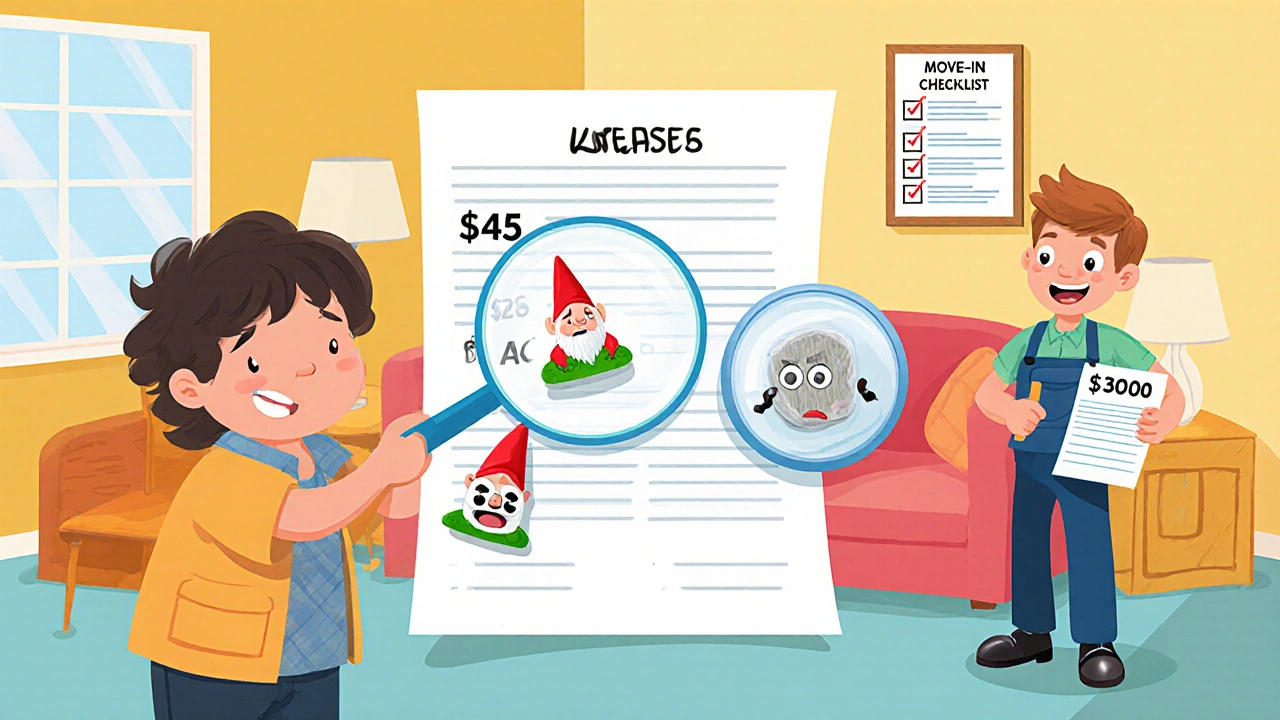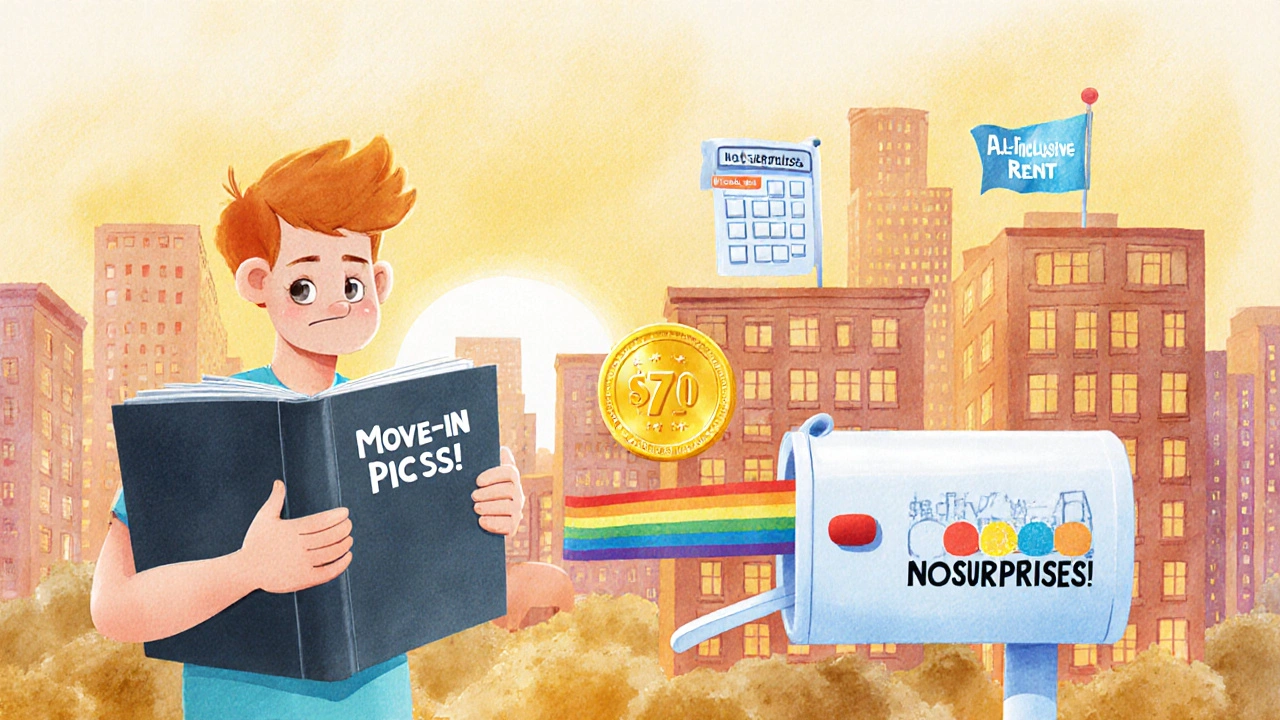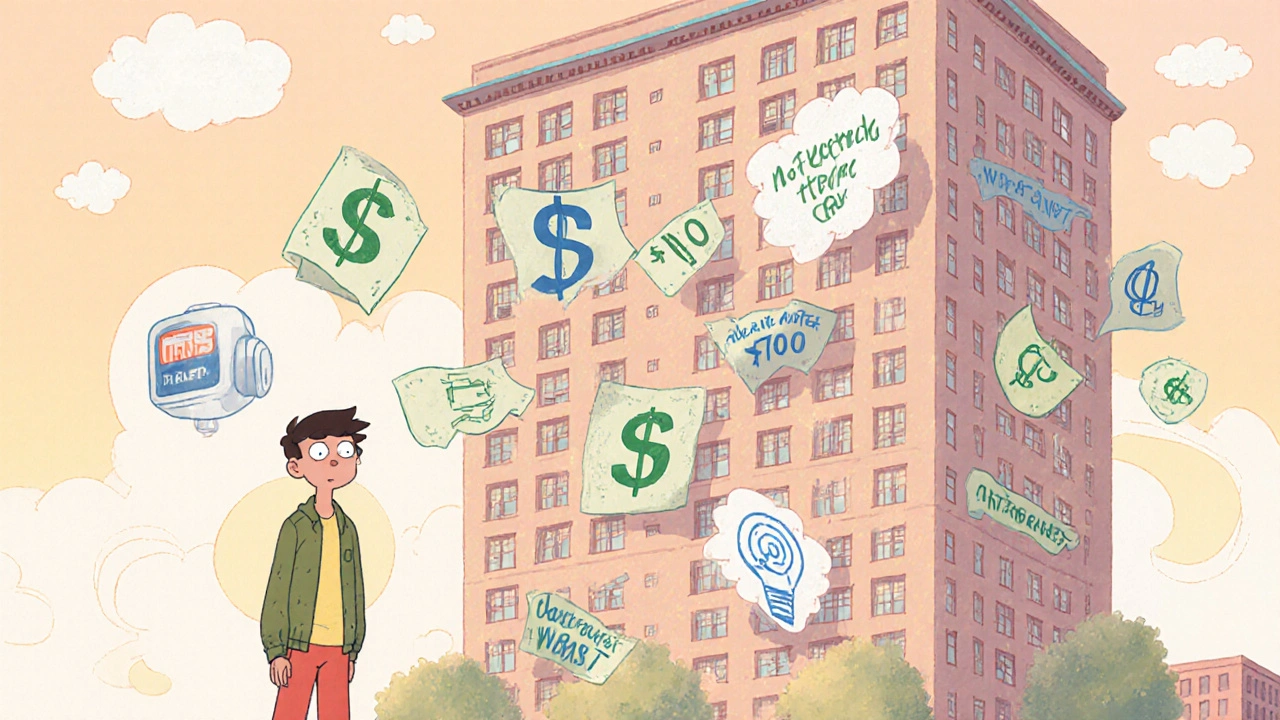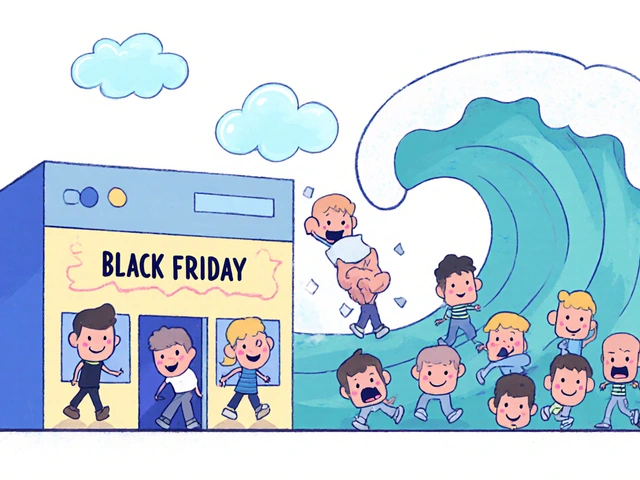Total Housing Cost Calculator
Total Monthly Cost: $0.00
This includes rent and utilities (if not all-inclusive)
Security Deposit (One-time)
$0.00
What You’re Really Paying for Rent
When you see a listing for a $1,400 apartment, it’s easy to think that’s your total housing cost. But that number is just the start. In reality, your monthly housing bill could easily be $1,700 or more once you add in utilities, deposits, and hidden fees. According to the Federal Reserve, housing makes up nearly half of what the average American household spends each month. That’s not just rent-it’s everything tied to living in a place: electricity, water, trash, internet, and even the money you put down upfront to secure the lease.
Most first-time renters get hit with surprises. A 2023 study by RPM Piedmont found that 62% of new renters go over budget in their first three months-not because they spent too much on food or entertainment, but because they didn’t account for the full picture of housing costs. You might think your rent covers everything, but in most cases, it doesn’t. You’ll need to pay for utilities separately, and those can add $150 to $250 a month depending on where you live and what kind of place you rent.
Security Deposits: What They Are and How They Work
Almost every landlord asks for a security deposit. The national average is around $700, but that number can swing wildly. In California, the law limits it to one month’s rent for an unfurnished unit. In Texas, there’s no legal cap. In Missouri, it’s capped at two months’ rent. Before you sign anything, find out what your state allows.
Landlords don’t keep your deposit just because you moved out. They can only use it for five specific reasons: damage beyond normal wear and tear, excessive cleaning, unpaid rent, unpaid utilities, or removing items you left behind. If your walls are painted a bright color and you didn’t repaint them, they can charge you to repaint. If you left a broken couch in the unit, they can charge for hauling it away. But if the carpet is worn from regular use? That’s normal. They can’t charge you for that.
Most states require landlords to give you an itemized list of deductions within 30 days after you move out. If they don’t, you may be entitled to get your full deposit back-even if you caused some damage. Always take timestamped photos when you move in. Do it with the landlord or manager present if you can. That simple step cuts deposit disputes by 63%, according to LawDepot’s 2023 analysis.
Utilities: The Hidden Bill You Can’t Ignore
Utilities aren’t optional. You need heat in winter, AC in summer, and water to shower. But how much they cost depends on where you live and what kind of place you rent.
If you’re renting an apartment in a multi-unit building, your landlord might cover water, sewer, and trash. That’s common. But you’ll still pay for electricity, gas, internet, and cable. In a single-family home, you pay for everything-including the lawn care and snow removal if it’s not included. Renting a house usually means paying 37% more in total housing costs than renting an apartment, according to Bridge Homes’ 2023 data.
Costs vary by city. In New York City, the average monthly utility bill is $245. In Phoenix, it’s $155. Why? Lower water rates and different energy sources. In California, renters spend 11.7% of their income on utilities alone. In the Midwest, it’s just 6.2%. If you’re moving to a new city, don’t guess-use NerdWallet’s 2024 Utility Calculator. It’s accurate within 89% based on data from 12,000 addresses.
Some landlords now offer all-inclusive rent. That means utilities are baked into the rent price. About 31% of high-end properties do this, and 41% of Gen Z renters prefer it-even if the rent is higher. Why? Simplicity. One bill. No surprises. But landlords who offer this often face longer vacancies when tenants leave because utility companies take up to 72 hours to reconnect service, costing them $385 in lost rent per vacancy, according to MySmartMove.

Hidden Fees: What Landlords Won’t Tell You
Landlords aren’t required to list every fee upfront. That’s why 74% of renters encounter at least one hidden charge in their first year, according to Zillow’s 2023 Tenant Survey.
Common hidden fees include:
- Landscaping maintenance: $45-$75/month (common in single-family rentals)
- AC filter replacement: $15-$30/month (charged monthly in newer apartments)
- Move-in fees: $350 average, non-refundable (now used instead of deposits in 14% of rentals)
- Utility reconnection fees: $300-$400 if the power or gas was turned off
One Reddit user in Texas paid $412 just to get their electricity turned on after moving in. That’s not a deposit-it’s a one-time fee charged by the utility company, not the landlord. These fees aren’t illegal, but they’re rarely disclosed until it’s too late.
Check the lease carefully. Look for phrases like “additional fees may apply” or “tenant responsible for all services.” If something isn’t listed, ask for it in writing. The Consumer Financial Protection Bureau says 53% of rental disputes come from undisclosed fees. Get it in writing. Keep a copy.
How to Budget for Housing Costs
Don’t just look at the rent. Look at the total cost. Here’s how to break it down:
- Rent: 20-25% of your gross income
- Utilities: 5-6% of your gross income
- Security deposit: 3-4% of your annual income (this is a one-time cost)
That’s the FHA-recommended budget. If you make $5,000 a month, you should spend no more than $1,250 on rent, $250-$300 on utilities, and set aside $1,500 for your deposit. That’s $1,500-$1,550 total per month. If your rent is $1,400 and you’re not factoring in anything else, you’re already in danger.
Use a budgeting app like Mint or YNAB. A 2023 study by the Consumer Federation of America found that renters who tracked their spending in real time reduced utility overspending by 19%. Set up alerts for when you’re approaching your utility limit. It’s not magic-it’s just awareness.

Before You Sign: The 5-Step Move-In Checklist
Here’s what you must do before you hand over your deposit:
- Get a written list of all fees. Ask for a document that lists rent, utilities, deposits, and any additional charges. Don’t rely on what the agent says.
- Call the utility companies. Find out who provides service at that address and what reconnection fees exist. Ask for a quote. Some companies charge $50-$150 to turn service on quickly.
- Schedule connections 5 business days early. Don’t wait until move-in day. You’ll pay extra for rush service.
- Do a move-in inspection with photos. Take pictures of every room, every scratch, every stain. Date them. Send them to the landlord. This is your proof if they try to charge you later.
- Read the lease. All of it. Look for clauses about maintenance, pet fees, parking, and who pays for what. If something’s unclear, ask for clarification in writing.
These five steps take about 2 hours. They can save you hundreds-or even thousands-of dollars.
What’s Changing in 2025
The housing cost landscape is shifting. In 2023, New York passed a law requiring landlords to include utility cost estimates in every lease. Since then, utility-related disputes have dropped by 37%. Other states are following.
The Biden administration’s 2024 Housing Supply Action Plan now requires landlords who receive federal funds to provide clear utility cost estimates. That’s a big deal-it means more transparency for low-income renters.
Property management software like AppFolio and Buildium added utility cost calculators in 2024. That means more listings will show you not just rent, but estimated utility bills. It’s still early, but this trend is growing.
At the same time, landlords are trying to stabilize tenancy. More are bundling utilities into rent to reduce turnover. Harvard’s Joint Center predicts that by 2026, 12-15% of rentals will be all-inclusive. That could mean higher rent, but fewer surprises.
Final Thought: Housing Costs Are Not Static
What you pay today might not be what you pay next year. Inflation hit housing harder than anything else. Between 2020 and 2024, shelter costs rose 23%. Utilities followed close behind. Renters who treat housing as a fixed cost are setting themselves up for stress.
Plan ahead. Track your spending. Ask questions. Get everything in writing. You don’t need to be a financial expert to avoid being taken advantage of-you just need to be prepared. The difference between a smooth move and a financial disaster isn’t luck. It’s doing the work before you sign the paper.




I wish someone had told me this before I moved into my first apartment. I thought $1,300 rent meant $1,300 total-ended up owing $400 in utility reconnection fees because I didn’t call the power company until move-in day. Took me three months to recover financially. Take the 2 hours. Do the checklist. Your future self will thank you.
Also, photos. Always take photos. Even if the landlord says ‘don’t worry about it.’ They’ll worry about it when you’re gone.
OMG YES. All-inclusive rent is the *only* way to go if you’re Gen Z or just trying to survive. I switched from a $1,600 place with separate bills to a $1,850 all-inclusive unit and my mental health improved 200%. No more ‘why is my electric bill $380 in July??’ panic. Also, landlords who do this? They’re not being shady-they’re just smarter. Less turnover, less drama. Win-win. Stop treating housing like a puzzle you have to solve every month. Just pay one bill and chill.
PS: YNAB is a game-changer. I used to spend $400 on utilities. Now I’m at $220. Because I *see* it. Not guess. See.
It is truly remarkable how the modern rental system has evolved into a labyrinth of hidden obligations, where the tenant, often inexperienced and economically vulnerable, is expected to navigate a web of fees, regulations, and unspoken expectations without formal guidance. In my homeland of India, we do not have security deposits in the same sense-instead, we have a system of trust and community accountability, where the landlord and tenant share mutual responsibility. Here, however, the transactional nature of housing has turned a basic human need into a legal battleground. I wonder: is this not a reflection of deeper societal shifts? Where empathy is replaced by clauses, and relationships are reduced to contracts?
Still, your checklist is wise. And I commend you for offering practical tools. Perhaps, in time, transparency will become not just a legal requirement, but a cultural norm. Until then, we must be the ones to demand it-with documentation, with patience, and with quiet persistence.
Bro, the move-in fee replacing deposits is a slick scam. Landlords call it a ‘non-refundable administrative fee’ but it’s just a deposit with a fancy name. I’ve seen it in three different cities. Same thing. They avoid state deposit caps by rebranding. And utility reconnection fees? That’s the utility company, sure-but landlords know this. They don’t tell you because they want you to sign without asking. Smart renters ask for the ‘fee schedule’ before viewing the unit. If they hesitate? Walk. There are 10 other places that won’t try to nickel-and-dime you into bankruptcy.
Also, ‘lawn care’ in an apartment? That’s not a fee, that’s a red flag. If you’re in a multi-unit, the landlord pays for that. If they’re charging you? They’re lying.
Wow. A whole article about not getting scammed by landlords. Groundbreaking. I’m shocked this isn’t taught in kindergarten. Next up: ‘How to Not Get Roasted by a Toaster.’
But seriously, if you’re surprised by utility costs or deposits, maybe don’t move out of your parents’ basement until you’ve passed a basic financial literacy test. Also, ‘all-inclusive rent’? That’s just rent + inflation tax. You’re paying more upfront for the privilege of being a passive consumer. Real rent nerds know the game: find a place with low rent, pay utilities yourself, and optimize. Like, use a smart thermostat. Switch to LED. Cancel cable. Stop being a victim of capitalism and start being a tactical renter.